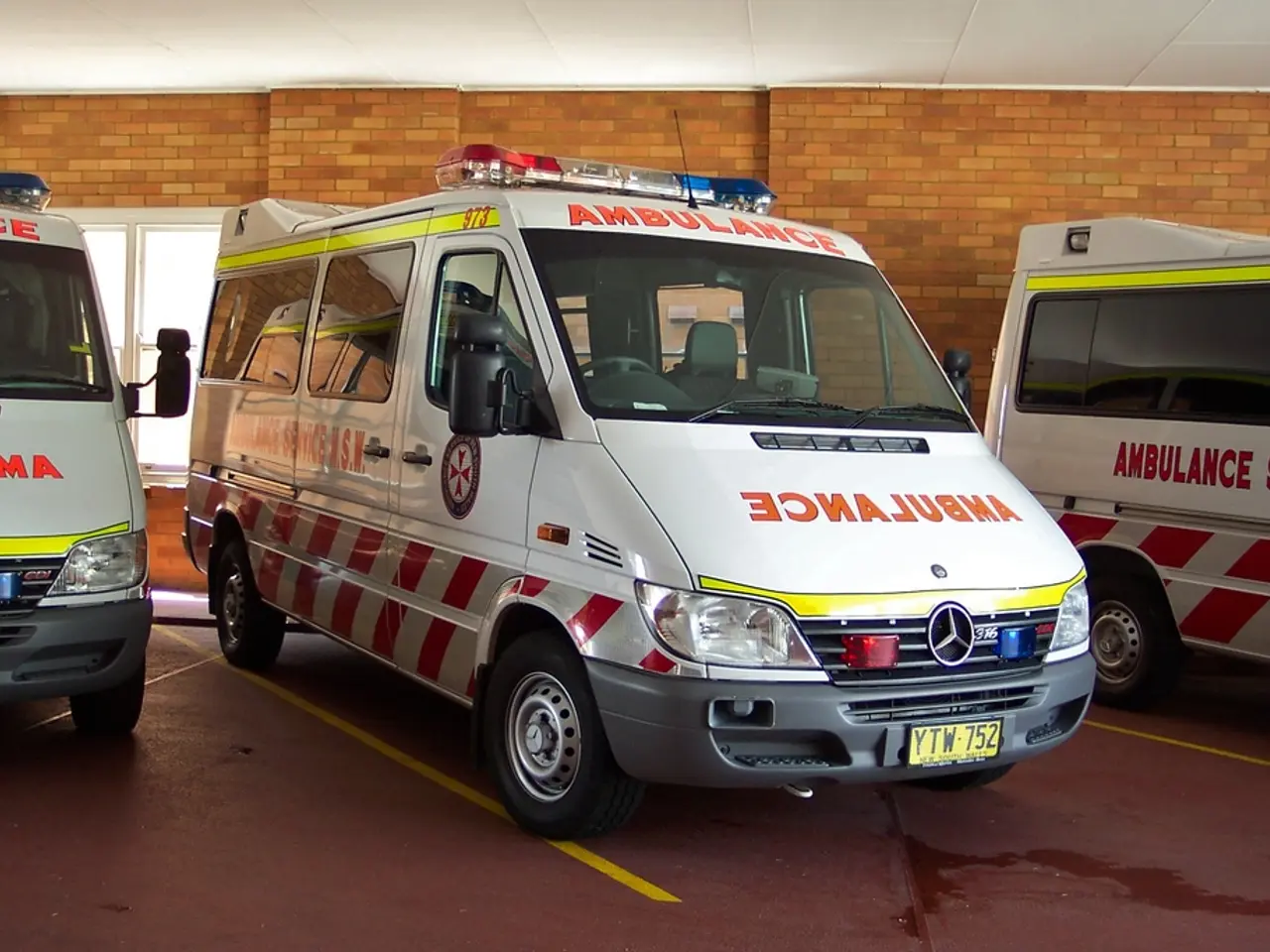Lithuania's Head of State Speaks Out Against Israel Over Gaza Predicament
In a significant turn of events, the presidents of Lithuania and Israel have found themselves at the centre of a complex geopolitical situation, with both expressing concern over the ongoing humanitarian crisis in the Gaza Strip.
Israeli President Isaac Herzog and his Lithuanian counterpart, Gitanas Nauseda, recently shared their support for Ukraine in its fight against Russia. However, their discussions also touched upon a different conflict, with Nauseda urging Israel to support Ukraine more actively and also to address the humanitarian crisis in Gaza more urgently.
The humanitarian situation in Gaza remains catastrophic, marked by ongoing heavy bombardment, widespread destruction, mass displacement, and acute shortages of essential supplies. Since October 2023, over 61,700 Palestinians have reportedly been killed, with more than 154,000 injured, and around 86% of the territory under Israeli military control or displacement orders.
The infrastructure of Gaza is severely damaged, with about 70% destroyed, leading to hospital overcrowding and dire food insecurity. Approximately one-third of the population is going without food for days, and severe malnutrition affects tens of thousands of children, causing deaths from hunger-related causes.
UNRWA and other humanitarian actors have faced severe restrictions in delivering aid, with no humanitarian aid, including vital medicines and medical supplies, entering Gaza for over five months as of mid-August 2025. These restrictions are compounded by new and restrictive NGO registration requirements in the region, leading to fears that essential international NGOs might have to leave the Occupied Palestinian Territories soon, exacerbating the humanitarian crisis.
Lithuanian President Gitanas Nausėda has publicly criticized the blockade and impediments to humanitarian aid in Gaza. In a joint statement with 27 other countries, Lithuania underscored the urgent need to unblock aid shipments and facilitate safe, large-scale humanitarian access, calling on Israel to authorize international NGO operations and use all crossings for aid delivery without politicization or violence during distribution.
Israeli President Isaac Herzog, on the other hand, has emphasized Israel's investments in humanitarian aid for Gaza, particularly in the area of healthcare. This week, he announced that 23,000 tons of humanitarian aid had entered the Gaza Strip. However, Nausėda has called for more urgent steps to resolve the humanitarian crisis, stating that starvation cannot be used as a tool of political or military fighting.
The crisis is further complicated by the fact that more than 2 million Palestinians live in the devastated Gaza Strip. The Palestinian militant group Hamas is reported to have taken 251 hostages, some of whom remain in Gaza. President Herzog showed photos of two hostages, including one with Lithuanian roots, to emphasize their poor physical condition and the resulting danger to their lives.
In conclusion, the current humanitarian situation in Gaza is dire, with escalating famine, large-scale casualties, infrastructure collapse, and severe restrictions on aid delivery, which Lithuania’s president and other international actors have condemned as unacceptable impediments worsening civilian suffering. Lithuania supports the two-state solution in line with the principles of international law and has called on Israel to ensure the respect of human rights in Gaza.
- The dire humanitarian crisis in Gaza, marked by escalating famine, large-scale casualties, and infrastructure collapse, has drawn the attention of both Lithuanian President Gitanas Nausėda and Israeli President Isaac Herzog, who have advocated for urgent action to address the crisis.
- In addition to their discussions on Ukraine, Lithuanian President Gitanas Nausėda and Israeli President Isaac Herzog have expressed concern over the ongoing humanitarian crisis in Gaza, with Nausėda urging Israel to authorize international NGO operations and use all crossings for aid delivery, while Herzog has emphasized Israel's investments in humanitarian aid, particularly in healthcare, but acknowledged the need for more urgent steps to resolve the crisis.






